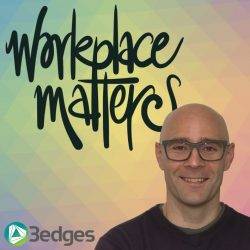July 7, 2017
Flexible and family friendly workplaces across the UK named in charity’s awards 0
 Britain’s most family friendly and flexible employers have been recognised in this year’s Top Employers for Working Families Awards. Now in their 8th year, the annual Top Employers for Working Families Special Awards from the UK’s work life balance charity cover 11 categories across a range of work life policies and practices. Four new sector-specific awards are being introduced this year for the private, public and third sectors; as well as a category for small employers. Sarah Jackson OBE, chief executive of Working Families, said: “In many ways, flexible working and family friendly working have never been more part of the bloodstream of British business. We had a record-breaking number of entries this year, showcasing a wealth of exciting approaches to creating agility in the workplace. Congratulations to all this year’s Top Employers for Working Families award winners, singled out because they offer leading flexible workplaces that support the grain of their employees’ lives. I look forward to working with them to make work work, for people, families and the economy, so that families thrive and business prospers.”
Britain’s most family friendly and flexible employers have been recognised in this year’s Top Employers for Working Families Awards. Now in their 8th year, the annual Top Employers for Working Families Special Awards from the UK’s work life balance charity cover 11 categories across a range of work life policies and practices. Four new sector-specific awards are being introduced this year for the private, public and third sectors; as well as a category for small employers. Sarah Jackson OBE, chief executive of Working Families, said: “In many ways, flexible working and family friendly working have never been more part of the bloodstream of British business. We had a record-breaking number of entries this year, showcasing a wealth of exciting approaches to creating agility in the workplace. Congratulations to all this year’s Top Employers for Working Families award winners, singled out because they offer leading flexible workplaces that support the grain of their employees’ lives. I look forward to working with them to make work work, for people, families and the economy, so that families thrive and business prospers.”









 Nearly three quarters (70 percent) of employers say it’s healthy for employees to have someone to confide in at work, according to new research, but it claims, 1 in 4 employees would consider leaving the company if their friend left. The totaljobs research which featured responses from over 4,000 employees and 103 employers on the latest trends in workplace relationships and office politics found that two thirds (65 percent) of UK workers are finding ‘work spouses’ in the office – that one person who they are very close. Although over half of employers (56 percent) say strong work friendships increase productivity and 60 percent of work spouses say their relationship means ‘they look forward to going into work’, which can help improve staff retention, 1 in 4 (23 percent) say if their friend left, they would consider leaving themselves. Nearly one in 10 (7 percent) go as far as to say that their work spouse leaving the company would be ‘like a bereavement’.
Nearly three quarters (70 percent) of employers say it’s healthy for employees to have someone to confide in at work, according to new research, but it claims, 1 in 4 employees would consider leaving the company if their friend left. The totaljobs research which featured responses from over 4,000 employees and 103 employers on the latest trends in workplace relationships and office politics found that two thirds (65 percent) of UK workers are finding ‘work spouses’ in the office – that one person who they are very close. Although over half of employers (56 percent) say strong work friendships increase productivity and 60 percent of work spouses say their relationship means ‘they look forward to going into work’, which can help improve staff retention, 1 in 4 (23 percent) say if their friend left, they would consider leaving themselves. Nearly one in 10 (7 percent) go as far as to say that their work spouse leaving the company would be ‘like a bereavement’.












 An increasing number of workers are taking on caring responsibilities, be this for children, elderly relatives or other dependents, and it’s becoming a major cause of workforce absence, claims new research. According to data released by group risk industry body GRiD, for 61 percent of employers these issues are a main cause of short-term absence (less than 4 weeks); for 49 percent of employers these issues are a main cause of mid-term absence (4 weeks to 6 months) and for 43 percent of employers these issues are a main cause of long-term absence (in excess of 6 months). They can also be a contributory factor in the development of mental illness or the deterioration of mental health. Indeed, mental ill-health is another major cause of absence, due to the knock-on effects of stress and deteriorating mental health that results in more absence. In terms of what employers are doing to reduce absence and improve attendance, flexible working comes out as the top-rated solution, with 36 percent of employers citing this as one of the measures they have put in place to minimise absence.
An increasing number of workers are taking on caring responsibilities, be this for children, elderly relatives or other dependents, and it’s becoming a major cause of workforce absence, claims new research. According to data released by group risk industry body GRiD, for 61 percent of employers these issues are a main cause of short-term absence (less than 4 weeks); for 49 percent of employers these issues are a main cause of mid-term absence (4 weeks to 6 months) and for 43 percent of employers these issues are a main cause of long-term absence (in excess of 6 months). They can also be a contributory factor in the development of mental illness or the deterioration of mental health. Indeed, mental ill-health is another major cause of absence, due to the knock-on effects of stress and deteriorating mental health that results in more absence. In terms of what employers are doing to reduce absence and improve attendance, flexible working comes out as the top-rated solution, with 36 percent of employers citing this as one of the measures they have put in place to minimise absence.









June 14, 2017
Workplace wellbeing is now embedded in the very bricks and mortar of the building 0
by Sion Davies • Comment, Wellbeing, Workplace design
(more…)